An unexpected power outage can jeopardize your comfort and functionality. From primary appliances to securing a safe working environment from home or keeping the house safe, a diesel generator provides the perfect balance of penetration, performance, and durability. This article discusses why diesel generators are the preferred option for the average homeowner, their benefits, and provides helpful information to support you in selecting the ideal one to suit your needs. So, prepare to learn how this sturdy equipment can serve as a partner for securing your home’s energy supply.
What is a Diesel Generator?
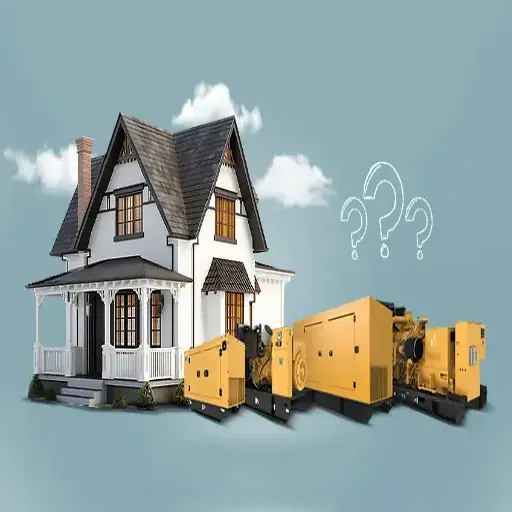
Diesel generators, a silent source of power during power outages and in areas where stable power grids may not be available, convert chemical energy into electrical energy. A diesel generator consists of a diesel engine working in tandem with an electric generator to produce energy or electricity. Diesel generators are generally reliable, fuel-efficient, and durable; thus, from an economic standpoint, they serve the residential and commercial sectors well.
Role in Residential Backup Power
Diesel generators have always been a vital component in the uninterrupted power supply chain during emergencies, providing residential backup power solutions whenever there is an outage due to severe weather or natural disasters. With the integration of advanced technology, modern diesel generators have become compact, efficient, and environmentally friendly, expanding their capabilities for residential use. They enable the operation of light, heating, or cooling systems and the application of appliances during extended power outages due to their higher power output compared to other types of A-grade engines, thus appealing to residential classes living in areas prone to frequent blackouts or with poor grid reliability.
Evolution and Clean-Diesel Technology
The cleaning-diesel technology is indeed crucial in finally shedding the bad environmental image associated with diesel engines. ULSD fuel, catalytic converters, and DPFs are some of the new technologies that have reduced the emissions of particulates and nitrogen oxides. Modern diesel generating sets are designed to meet stringent emission standards while maintaining power and efficiency. It presents a whole new outlook with respect to sustainability, thus ensuring the continued evolution of diesel technology as a viable and environmentally friendlier energy alternative.
Benefits of Diesel Generators for Home Use
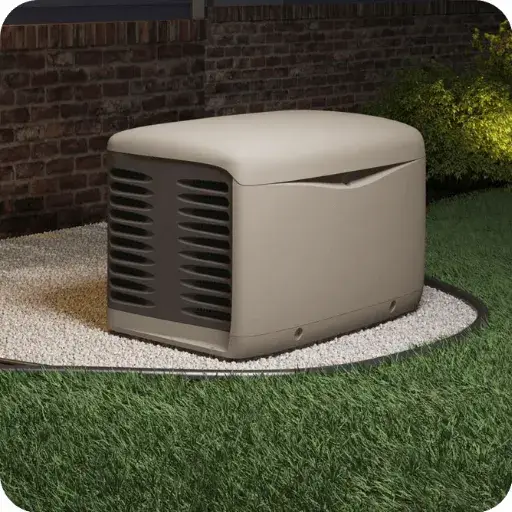
- Reliability: Diesel engines are durable and dependable, providing an uninterrupted power supply during outages.
- Fuel Efficiency: Soy engines are generally more fuel-efficient than their gasoline counterparts. This, in turn, keeps operational costs down.
- Longevity: With proper maintenance, a diesel generator has a long lifespan, making it a worthwhile investment for homeowners.
- High Power Output: Diesel generators can produce immense power suitable for running large appliances or household systems during an emergency.
- Safety: Diesel fuel is comparatively less flammable. This factor enhances safety in its home use.
- Ease of Maintenance: These generators have fewer components that require regular servicing, making their upkeep easier.
Reliability During Outages
Diesel generators are, quite simply, the most reliable source of power in a power outage situation. These machines are considered among the most reliable backup power solutions available today, offering steady and consistent generation throughout prolonged power outages. Rigorous, site-situated diesel engine generators will provide reliability during operations in any challenging conditions, ensuring that critical household systems and appliances remain operational. Modern diesel generators are significantly quieter and use less fuel than their older counterparts; hence, for a homeowner, these would undoubtedly be good choices for reassurance during an emergency.
Fuel Efficiency and Cost-Effectiveness
Diesel engines are recognized as the most fuel-efficient power sources, as they offer the lowest fuel consumption among various engine types. Due to advancements in engine technology, diesel generators currently consume significantly less fuel compared to other generators. This efficiency means lower operational cost in the long run, thus making them ideal for short-term use and extended outages. Additionally, the higher energy density of diesel fuels allows generators to run longer with a comparatively smaller amount of fuel, resulting in even better fuel economy. This positions the diesel generators as a worthy investment for anyone seeking to reduce energy costs while ensuring they never face a power outage during an emergency.
Diesel Generators vs. Other Types
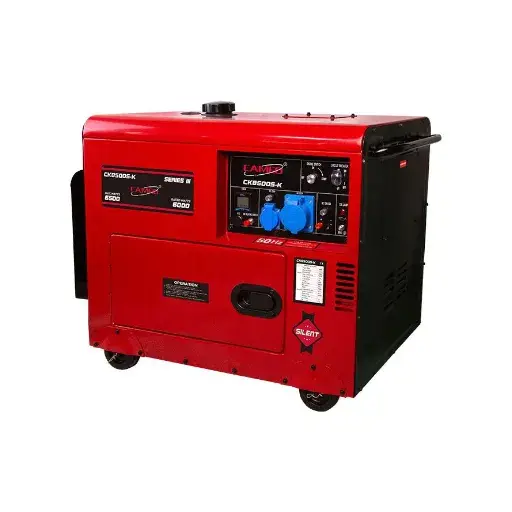
Some key distinctions can be observed when comparing diesel generators with various types, such as those operated by natural gas or those that operate on solar power.
- Fuel Efficiency: Diesel generators offer improved fuel efficiency and more extended operating periods, which can be advantageous in the long term in terms of cost compared to natural gas generators that require more frequent refueling.
- Reliability: Diesel generators perform reliably under heavy loads and in adverse conditions, whereas solar-powered generators often suffer from reliability issues due to the unpredictability of sunlight.
- Maintenance: Diesel generators generally require less maintenance than gas generators due to their simpler design; however, regular maintenance is still necessary for them to last.
- Initial Cost: Diesel generators typically have a higher initial cost compared to other types, such as gas-powered generators; however, durability and efficiency certainly offset this in the long run.
Diesel vs. Gasoline Generators
Here’s a concise comparison table for Diesel vs. Gasoline Generators, incorporating the latest insights:
| Key Point | Diesel Generators | Gasoline Generators |
|---|---|---|
| Fuel Efficiency | Higher, longer runtime | The lower consumes more fuel |
| Durability | More durable, longer lifespan | Less durable, shorter lifespan |
| Maintenance | Requires less frequent servicing | Needs more frequent maintenance |
| Fuel Availability | Widely available globally | Readily available in most areas |
| Cost | Higher upfront cost | Lower upfront cost |
| Noise Levels | Quieter with modern tech | Generally louder |
| Emissions | Lower with clean-diesel tech | Higher emissions |
| Performance in Cold | Reliable in cold weather | May struggle in cold conditions |
| Safety | Less flammable fuel | More flammable fuel |
| Portability | Heavier, less portable | Lighter, more portable |
| Eco-Friendly Options | Diesel-solar hybrids available | Limited eco-friendly options |
| Use Cases | Heavy-duty, long-term use | Light-duty, short-term use |
Diesel vs. Propane Generators
Here’s a concise comparison table for Diesel vs. Propane Generators, incorporating the latest insights:
| Key Point | Diesel Generators | Propane Generators |
|---|---|---|
| Fuel Efficiency | Higher uses less fuel | The lower uses more fuel |
| Emissions | Higher emissions | Cleaner emissions |
| Maintenance | Requires less frequent servicing | Lower maintenance needs |
| Fuel Availability | Widely available | Requires on-site storage |
| Cost | Higher upfront cost | Lower upfront cost |
| Noise Levels | Quieter with modern tech | Generally quieter |
| Performance in Cold | Reliable in cold weather | May struggle in extreme cold |
| Safety | Less flammable fuel | More flammable fuel |
| Eco-Friendliness | Less eco-friendly | Highly eco-friendly |
| Power Output | Higher, suitable for heavy loads | Moderate, best for light loads |
| Fuel Storage | Easier to store | Requires large tanks |
| Use Cases | Industrial, long-term use | Residential, short-term use |
Maintenance Tips for Home Diesel Generators
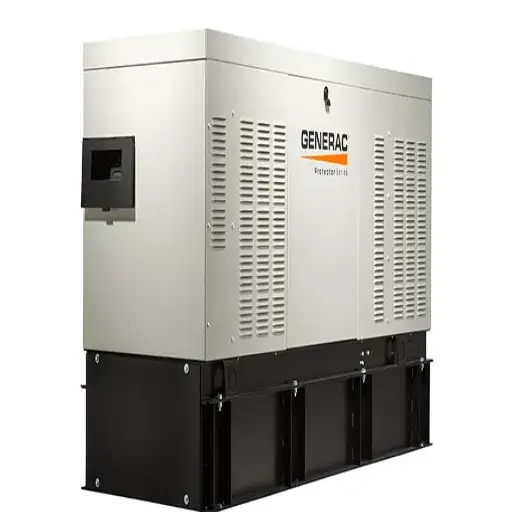
- Regular Oil Changes
To maintain a smooth lubrication process and prevent wear and tear, it is essential to change the engine oil according to the manufacturer’s instructions. - Check and Replace Air Filters
Air filters should be cleaned and replaced regularly to maintain optimal airflow and achieve the best possible performance. - Inspect the Fuel System
Check for leaks to ensure the tank is clean and free from debris. Use clean and pure diesel fuel to prevent injector clogging. - Test the Battery
A check of the battery should be carried out to ensure its connection and voltage are correct, to preserve power for a reliable start-up. - Run the Generator Periodically
Keeping the generator running for a short period can help prevent any engine problems and maintain the generator in good condition. - Monitor Coolant Levels
Check and top up the coolant level as required; this will help prevent overheating during operation. - Professional Servicing
Hire an expert with at least annual inspections, who can identify potential problems, to maintain long-term reliability.
Importance of Regular Servicing
Generators, when serviced regularly, maintain their prime performance or maximize their potential for life generation. Running without a maintenance schedule puts these generators at risk of sudden exigencies, such as major breakdowns, which entail heavy expenses for repairs or replacements, as well as downtime in essential operations. When minor issues arise during routine servicing, you prevent them from developing into bigger problems that would cost more than minor repairs. It also ensures that the generator operates efficiently, saving on fuel and reducing operating costs in turn. With increased dependence on backup power systems in critical industries, regular maintenance is, therefore, the key to ensuring reliability in times of need.
Periodic Testing for Readiness
Periodic testing for preparedness ensures the discovery of any potential issues before they turn into failure. By running periodic tests on loads and functionality, I guarantee the reliable performance of the generator during unforeseen outages. This approach instills confidence in its ability to support critical operations at times when they are needed the most.
Environmental Impacts of Diesel Generators
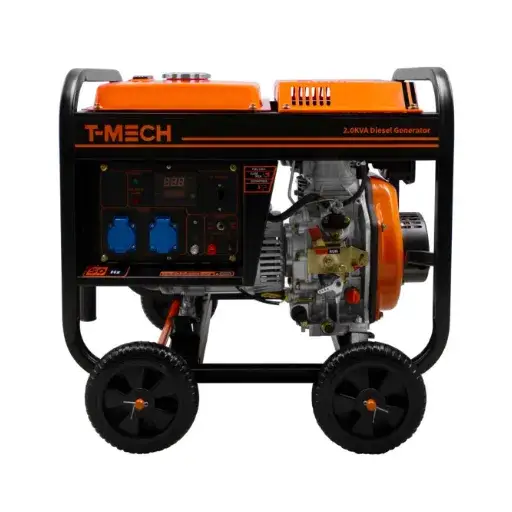
Diesel generators contribute significantly to environmental challenges. They produce emissions such as carbon dioxide (CO2), nitrogen oxides (NOx), and particulate matter, all of which can harm air quality and contribute to climate change. The prolonged use of diesel generators also increases noise pollution, which can affect both human and wildlife populations. Additionally, improper handling of fuel or generator maintenance can lead to spills, contaminating soil and water sources. To mitigate these effects, many organizations are exploring cleaner energy alternatives and adopting measures to improve generator efficiency and reduce emissions.
Understanding Emissions and Their Impact
Emissions, mainly from industrial activities and combustion of fossil fuels, have remained the leading causes of environmental degradation. With CO2 emissions from energy use accounting for 75% of global greenhouse gas emissions, climate change has taken hold, heating the globe, intensifying weather patterns, and impacting ecosystems worldwide. Although these gases are emitted in smaller quantities, methane and nitrous oxide are more potent greenhouse gases than carbon dioxide. Reducing their emissions from industries, transport, and energy production is crucial. Hence, a renewable energy transition, increased energy efficiency, and stricter regulations on all types of harmful emissions appear to be essential steps that should be taken to mitigate their effects globally.
Advancements in Clean-Diesel Technology
Clean diesel technology offers a wide range of emission control strategies. The growing issue of air pollution is still being addressed through various methods aimed at maintaining the environment by reducing emissions. The newest technologies were introduced with the development of high-pressure standard rail injection systems, enabling perfect timing for fuel delivery and improved combustion, resulting in lower particulate emissions. Other technologies of particulate emission control include SCR systems, together with diesel exhaust fluid, capable of mitigating NOx by 90%, particulate filters, and turbochargers. These inventions help fulfill environmental standards without compromising performance, enabling diesel engines to remain a more prosperous and cleaner energy alternative for industries, fuel transportation, and construction, while also furthering their efforts in achieving global emission reduction goals.
Reference Sources
These are five professional and high-authority reference sources on the topic “diesel generator for home,” from academic and research-based sites:
- ScienceDirect
Title: Techno-economic analysis of an optimized photovoltaic and diesel generator hybrid power system for remote houses in a tropical climate
Description: This study analyses the use of diesel generators as backup power for residential homes in a tropical climate. - AIP Publishing
Title: An Alaska case study: Diesel generator technologies
Description: Study on the key performances and metrics of diesel generators in remote and challenging environments. - Wiley Online Library
Title: Design of a reliable hybrid (PV/diesel) power system with energy storage in batteries for a remote residential home
Description: Research on hybrid systems of diesel generator-PV panel for residential energy requirements. - ScienceDirect
Title: Friend or foe? Diesel generators and the global energy transition
Description: A study exploring the global energy transition with respect to diesel generators and their adaptive features. - University of Nairobi Repository
Title: Towards developing a manual power generator for climate change adaptation and supply for domestic energy needs
Description: A study in energy solutions for domestic requirements, including diesel generators.
